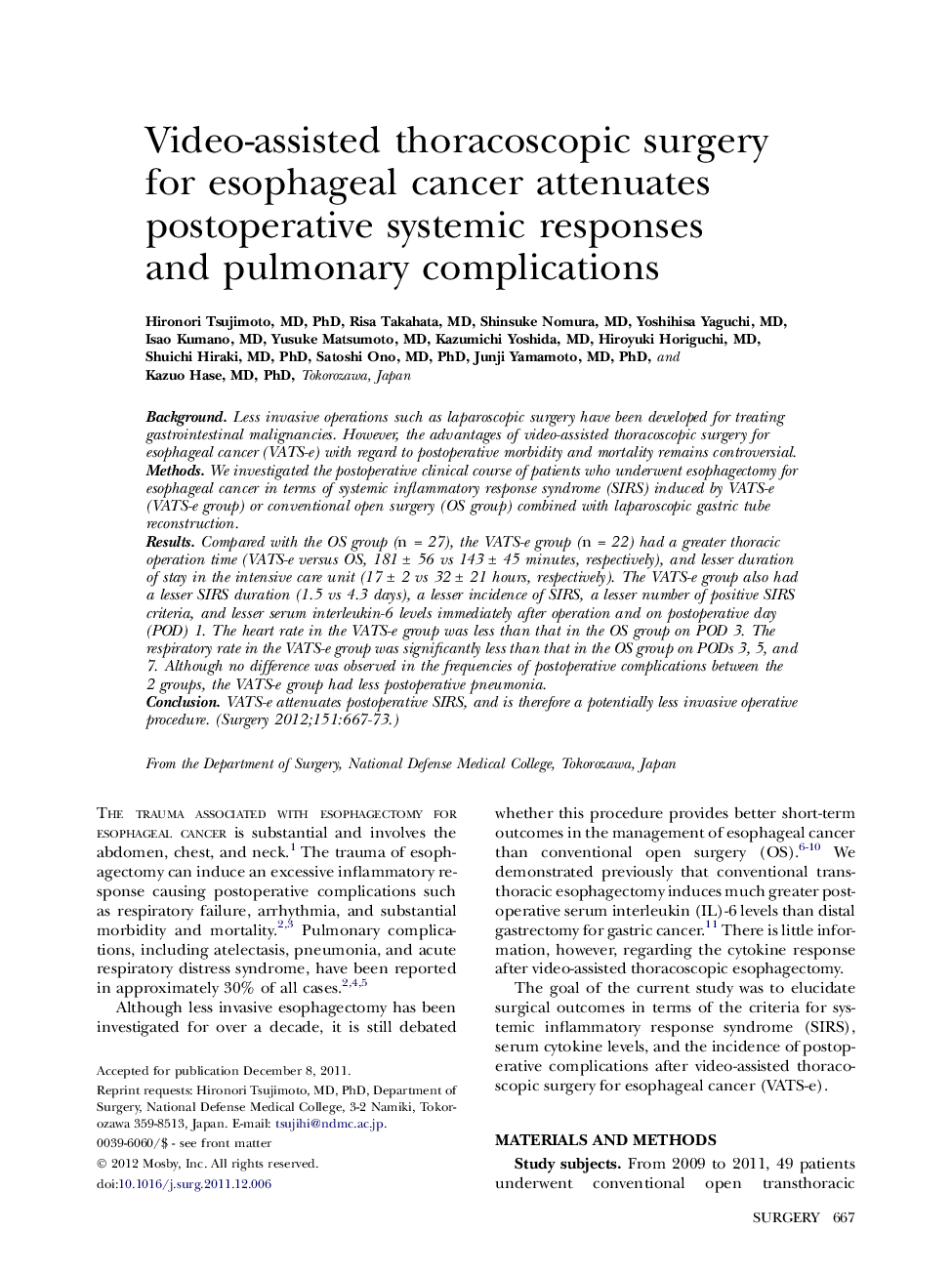| Article ID | Journal | Published Year | Pages | File Type |
|---|---|---|---|---|
| 4308458 | Surgery | 2012 | 7 Pages |
BackgroundLess invasive operations such as laparoscopic surgery have been developed for treating gastrointestinal malignancies. However, the advantages of video-assisted thoracoscopic surgery for esophageal cancer (VATS-e) with regard to postoperative morbidity and mortality remains controversial.MethodsWe investigated the postoperative clinical course of patients who underwent esophagectomy for esophageal cancer in terms of systemic inflammatory response syndrome (SIRS) induced by VATS-e (VATS-e group) or conventional open surgery (OS group) combined with laparoscopic gastric tube reconstruction.ResultsCompared with the OS group (n = 27), the VATS-e group (n = 22) had a greater thoracic operation time (VATS-e versus OS, 181 ± 56 vs 143 ± 45 minutes, respectively), and lesser duration of stay in the intensive care unit (17 ± 2 vs 32 ± 21 hours, respectively). The VATS-e group also had a lesser SIRS duration (1.5 vs 4.3 days), a lesser incidence of SIRS, a lesser number of positive SIRS criteria, and lesser serum interleukin-6 levels immediately after operation and on postoperative day (POD) 1. The heart rate in the VATS-e group was less than that in the OS group on POD 3. The respiratory rate in the VATS-e group was significantly less than that in the OS group on PODs 3, 5, and 7. Although no difference was observed in the frequencies of postoperative complications between the 2 groups, the VATS-e group had less postoperative pneumonia.ConclusionVATS-e attenuates postoperative SIRS, and is therefore a potentially less invasive operative procedure.
